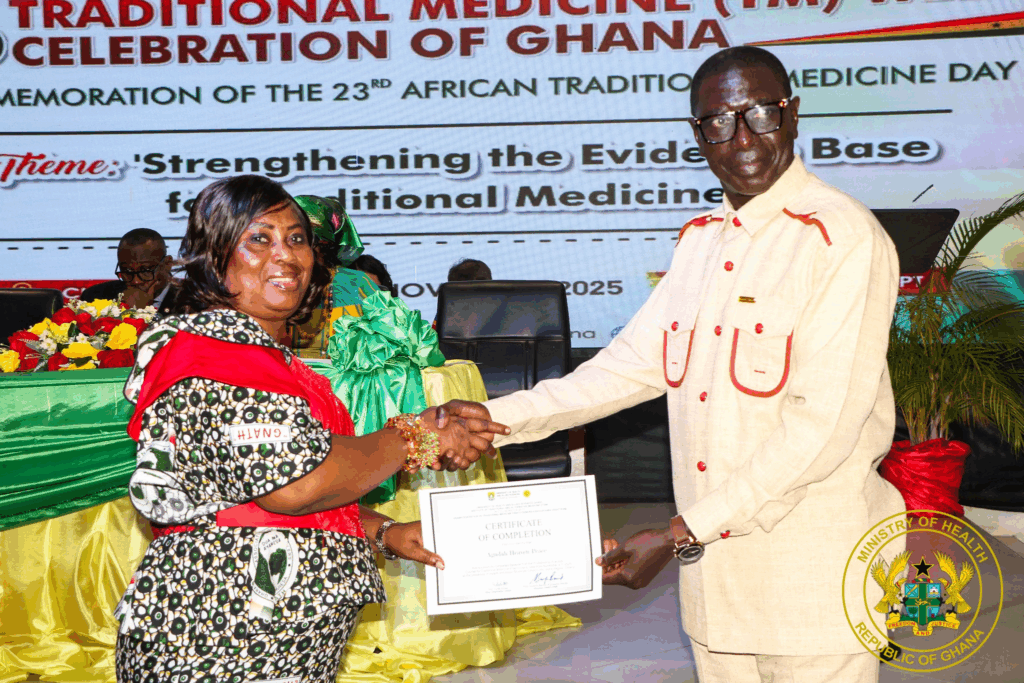Published
3 months agoon
By
Adubianews
Ghana has renewed its commitment to strengthening the scientific foundation and regulatory framework of traditional medicine as the Ministry of Health marked the 23rd African Traditional Medicine Day and the 26th Traditional Medicine Week.
Representing the Minister for Health, Kwabena Mintah Akandoh, the Director of Traditional and Alternative Medicine, Dr Anastasia Yirenkyi, highlighted that this year’s theme, “Strengthening the Evidence Base for Traditional Medicine,” reflects government’s determination to improve research, safety, and the integration of herbal medicine into the mainstream health system.
Dr Yirenkyi commended key institutions driving advancements in the sector, including the Centre for Plant Medicine Research, the Kwame Nkrumah University of Science and Technology, the University of Ghana, and the University of Health and Allied Sciences. These institutions continue to collaborate with the Food and Drugs Authority and the Traditional Medicine Practice Council (TMPC) to maintain product quality and uphold ethical and regulatory standards.
Addressing the gathering, Prof. Samuel Ato Duncan, President of the Ghana Federation of Traditional Medicine Practitioners Associations and Chairman of the TMPC, outlined the sector’s achievements. These include the licensing of more than 6,000 practitioners, certification of over 50 herbal manufacturing facilities, and the establishment of traditional medicine units in 55 district hospitals.
However, he noted that despite the progress, challenges such as limited resources and public misconceptions persist. He called for deeper collaboration, increased investment, and stronger measures to protect Ghana’s indigenous medical knowledge.
Dr Yirenkyi reaffirmed the Ministry’s commitment to promoting evidence-based traditional medicine that enhances national health outcomes while contributing to socio-economic development.


Ghana Set to Exit IMF Programme as Government Moves to Clear Stalled Project Debts


Ghana Exempted from Latest US Visa Restrictions, Says Ablakwa


Ghana Slams Israel Over “Inhumane” Treatment of Travellers, Orders Reciprocal Deportations


Dr. Johnson Asiama Confident Ghana Will Exit IMF Programme Ahead of Schedule


Ghana Condemns Israeli Airstrikes on Qatar, Calls It a Violation of International Law


Ghana to Hold State Funeral for Helicopter Crash Victims on August 15


Ghanaian Man on UK Work Leave Says He’s Staying in Ghana for Good


Ghana Lowers 2025 Deficit Target as Economy Shows Strong Recovery Signs


Parliament Scraps Marine Gas Oil Subsidy, Hikes Energy Levy to Curb Abuse

























